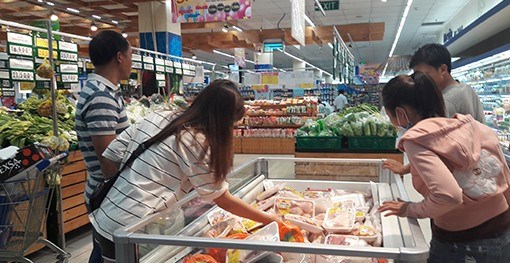



Trading
through commodity exchanges will be more convenient in Vietnam with the
Government’s new regulations on the establishment and trading on the commodity
exchange.(Photo: binhduong.gov.vn)
Decree No. 51/2018/ND-CP, which will be effective from June 1, 2018, amends and
supplements a number of articles of the Government’s Decree No. 158/2006/ND-CP,
dated December 28, 2006, on the conditions for the establishment of commodity
exchange.
According to Nguyen Viet Vinh, general secretary of the Vietnam Coffee and
Cocoa Association, the new decree has solved many problems in trading
activities on the commodity exchange in Vietnam and is expected to open a new
era for both businesses and farmers to boost their sales through this channel.
Decree 51 expands the list of goods traded on the commodity exchange, allowing
all commodities that are not prohibited by the State and those subject to
conditional trading, including the Vietnamese export commodities, as well as
goods that Vietnam needs to import to serve the local production.
The new regulations also extend the forms of trading order by accepting written
documents and other forms such as telegraph, telex, fax or data message.
An important content in this decree is that foreign investors will be allowed
to contribute capital to establish commodity exchange in Vietnam. Their
ownership in the exchange should not exceed 49 percent of its charter capital.
Foreign investors are also permitted to trade goods on the commodity exchange
as clients and can become members of the exchange (brokers or traders) without
ownership restraint.
In addition to this, the decree allows the interconnection of Vietnamese and
global commodity exchanges. This is expected to help promote the integration
process and development of the Vietnamese commodity exchanges.
"This (interlink) will create a lot of advantages in terms of commodity trading
volume and value information, better market assessment and stronger capital
capacity to prop up infrastructure and human resources of local exchanges,”
Vinh said at a recent conference introducing the decree.
Underdeveloped market
It has been eight years since the Vietnam Commodity Exchange, Vietnam’s first
commodity exchange, became operational in 2010. Since then, very few exchanges
have been established.
The total value of transactions through commodity exchanges has reached only 8
trillion VND (351 million USD) since, of which most transactions are focused on
coffee products.
Traders are mainly enterprises while farmers have no idea of the exchanges.
According to Nguyen Loc An, deputy head of the Domestic Market Agency under the
Ministry of Industry and Trade, commodity exchange in Vietnam is still
underdeveloped mainly due to many legal obstacles.
An said Decree 51 provided better legal basis for enterprises and farmers to
participate and trade on the exchange as well as for welcoming foreign
investment in the exchanges.
With these changes along with hedging tools, the commodity exchange is expected
to help businesses mitigate risks and secure operations as well as enhance
their position in both the domestic and global markets.
Source: VNA